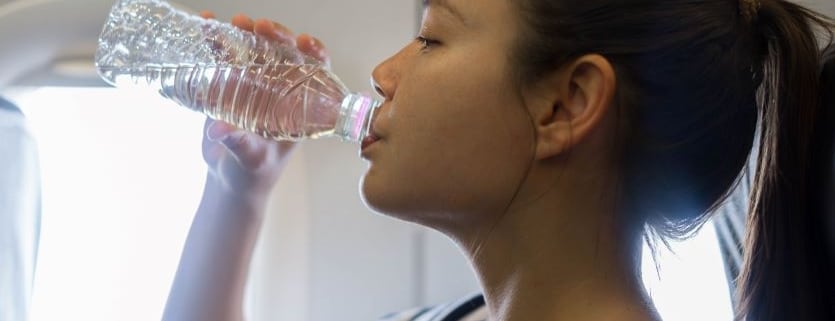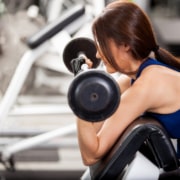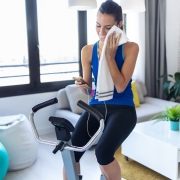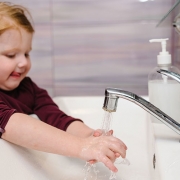Hydration and Travel: Learn How to Stay Hydrated on the Road
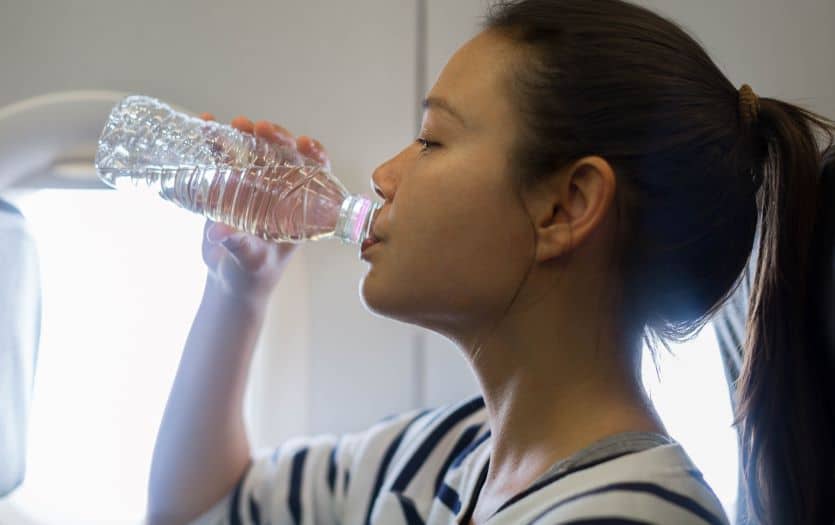
For even the most seasoned traveler, navigating new places can be a bit stressful. Juggling luggage, reservations, activities, and more makes it hard to remember one of the most overlooked aspects of travel health: staying hydrated.
Drinking enough water is difficult enough on a day-to-day basis. Throw in the hustle and hurry that comes with travel, and it becomes even harder to maintain healthy hydration levels. But you don’t have to let dehydration throw off your next trip.
Use these tips to stay hydrated on the road. Taking care of your hydration levels will help you spend less time stressing about your health and more time relaxing, working, or simply enjoying your trip.
The Importance of Staying Hydrated and How to Assess Your Hydration Level
The human body can go a surprisingly long time without food—sometimes over two weeks. Without water, however, you can only survive for about three days.
This isn’t too surprising when you consider the fact that your body is roughly 60% water. Also, so many bodily processes depend on water, including, but certainly not limited to:
- maintaining healthy temperature regulation
- supporting healthy joints
- helps in transporting nutrients to cells throughout the body
- maintaining healthy organ functions
- supporting your immune system in its fight to maintain your health
You get it—water is good for you. So how can you tell when you haven’t been drinking enough? The tell-tale sign is your urine. When you’re well-hydrated, your urine color should fall somewhere between light yellow and clear. Darker-colored urine often indicates you’re not well hydrated.
Other symptoms of underhydration include headaches, fatigue, dizziness, and light-headedness. Studies have even linked dehydration to increased cortisol levels. Cortisol is the body’s stress hormone and increased levels can cause an elevated heart rate, rapid breathing, and other fight-or-flight responses in the body.
The Challenges of Staying Hydrated Away from Home
In the comfort of your home, hydration is a simple matter: if you’re thirsty, you grab a glass of water. When you’re on the road—whether it’s a trip out-of-town or a day spent running errands—hydration isn’t so easy. It is, however, still vitally important. There are several travel-related factors that can increase your chances of falling short of your hydration goals.
The first is your access to clean water. In your home, you probably have unlimited drinking water on tap. This luxury isn’t always available on the go. You can, of course, bring water with you. But if you’re traveling by plane, you won’t be able to take a full bottle of water through security. Additionally, you might not be able to find places to fill your reusable bottle as frequently as you’d like.
Then there’s the stress of travel. As mentioned above, lacking proper hydration can cause stress by increasing your cortisol levels. But the inverse is also true. Stress—and increased cortisol levels—can cause dehydration. Stress can cause you to sweat more, breathe faster, and can increase your heart rate. All these bodily responses increase the amount of fluid you lose. That means you need to drink more water to maintain a healthy level of hydration.
Finally, there’s the little-known phenomenon that airplanes actually dehydrate you. If you’re traveling by plane, some of the air you breathe in flight is pulled from the surrounding atmosphere. And at 30,000 feet, there’s very little moisture in the air. This may not seem like a big deal, but you may notice your eyes, skin, mouth, and throat feel drier than usual. This can be a sign you’re a little underhydrated.
How to Stay Hydrated on the Go
At this point, hopefully you’ve learned two things. First, hydration is important. And second, travel can adversely impact your attempts at healthy hydration in a variety of ways.
So what can you do about it? Use these tips and tricks to stay hydrated on any journey.
- Carry a reusable water bottle: If you don’t have a reusable water bottle, buy one. You’ll be able to fill up on water at any fountain, restaurant, or sink. Some bottles are insulated, keeping the water cold for hours. This is also an environmentally friendly approach to healthy hydration since you’re ditching single-use plastics. Just make sure the water you are filling up on is safe to drink!
- Eat fruits and vegetables with a high water content: Most people think of hydration in terms of drinking fluids. But you can also eat your water. Fruits and veggies are a great source of fiber, vitamins, and minerals, but many are also supply you with water. Cucumbers, watermelon, oranges, and celery are just a few snacking options to help keep you hydrated. If you’re in an area without safe tap water, you may want to stick to thick-skinned fruits such as bananas, avocados, and pineapples.
- Pack a water filter in your bag: When you’re camping or traveling in an area without safe drinking water, a water filter is a must. Some allow you to pump water through a filter and out a hose, essentially giving you a portable faucet of drinking water. All you need is a stream, lake, or other source of water. You can also find water bottles with built-in filters. You simply fill the bottle and, as you suck the water through the straw, it’s pulled through a filter before you drink it. Additionally, you can try other water-purification methods, such as purifying tablets and UV water purifiers.
- Add chia seeds to your water: Chia seeds are popular among long-distance runners and other athletes because they’re often touted as an energy-boosting food. So what do they have to do with hydration? When added to water, these seeds absorb up to 12 times their weight in water. As a result, drinking water mixed with chia seeds can help you feel hydrated for longer stretches of time. Chia seeds are also rich in antioxidants, making them a great addition to your diet!
- Limit your coffee intake: While it’s mostly water, you shouldn’t rely on coffee for hydration. Coffee contains caffeine, and caffeine is a diuretic—meaning it makes you urinate more. And the more you urinate, the more fluid your body is losing. If not replaced, this can lead to dehydration. The same is true of other caffeinated beverages.
- Drink coconut water: Many people rely on sports drinks to stay hydrated. There’s just one problem: these beverages are often full of sugar. Enter coconut water, a natural beverage that is rich in electrolytes and will help you stay hydrated on the go.
- Limit your alcohol consumption: Alcohol, like caffeine, is a urine-inducing diuretic. For this reason, alcohol can dehydrate you very quickly. If you’re drinking at the airport or on vacation, be sure to drink plenty of water to keep your fluid levels up.
References
https://www.webmd.com/diet/features/water-stress-reduction
https://www.hsph.harvard.edu/news/hsph-in-the-news/the-importance-of-hydration/
https://www.ncoa.org/article/10-reasons-why-hydration-is-important
https://www.everydayhealth.com/dehydration/smart-tips-for-staying-hydrated-throughout-the-day/
https://elitelv.com/staying-hydrated-while-traveling/
https://www.huffpost.com/entry/how-to-stay-hydrated-whil_b_7505476
https://www.mayoclinic.org/diseases-conditions/dehydration/symptoms-causes/syc-20354086


